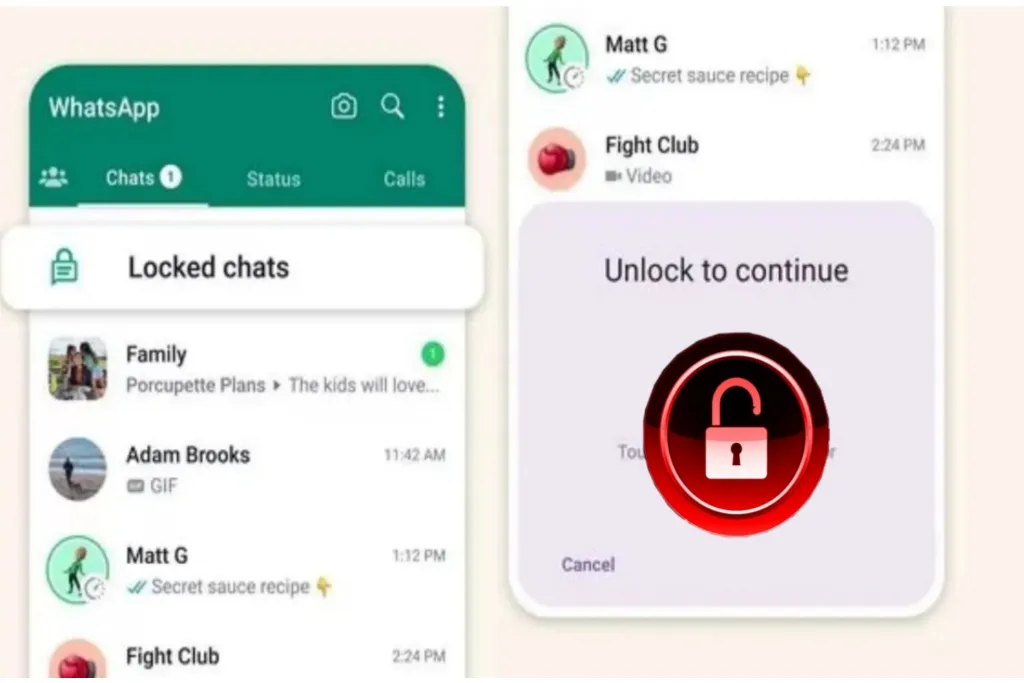Meta’s messaging app, WhatsApp, unveiled a fresh addition known as “Chat Lock” on Monday, with the primary goal of enhancing user privacy. This feature provides a secure mechanism to hide conversations within a password-protected folder, ensuring that notifications remain discreet and withhold information about the sender or message content.
In a recent Facebook post, Mark Zuckerberg, the founder, chairman, and CEO of Meta, confirmed the introduction of an innovative feature called “Chat Lock.” According to Zuckerberg, this feature secures conversations within a password-protected folder, ensuring that notifications no longer disclose the sender or message content.
The Chat Lock functionality involves transferring a chat thread from the main inbox of the WhatsApp app to a dedicated folder. Access to this folder is restricted to those who can provide the correct password or utilize biometric authentication methods like facial recognition or fingerprint scanning. By implementing this additional layer of security, Meta aims to enhance user privacy, particularly for sensitive discussions.
As part of Meta’s commitment to comprehensive privacy measures, WhatsApp users are also offered the option to encrypt their backups, limit screenshot capabilities, and activate automatic message disappearance.
This new feature arrives amidst Meta’s opposition to the proposed Online Safety Bill in the UK, as the company asserts that it could compromise the privacy of users worldwide. The UK government’s intention to have tech companies assist law enforcement agencies in combating child sexual abuse on their platforms has sparked concerns about privacy and surveillance.
WhatsApp, along with other messaging services, recently published an open letter urging a reconsideration of the legislation. The letter, dated April 17 and signed by WhatsApp head Will Cathcart and executives from Signal, Wire, and other messaging services, emphasized that no entity should possess the authority to access personal messages. They reaffirmed their commitment to defending encryption technology.
Industry leaders, including OPTF/Session, Threema, Viber, and Element, have also signed a letter opposing the legislation. Their collective argument highlights the potential for broad and indiscriminate surveillance of personal messages, impacting various individuals such as friends, family members, journalists, human rights activists, and politicians. They emphasize the importance of secure communication and call for a revision of the legislation to prioritize privacy and security.
In response to the controversy, British Prime Minister Rishi Sunak clarified that the government would not introduce routine scanning of private communication. While expressing support for strong encryption, Sunak’s spokesperson underscored the importance of maintaining public safety without compromising privacy.
Note: The original content included a non-English language portion.

